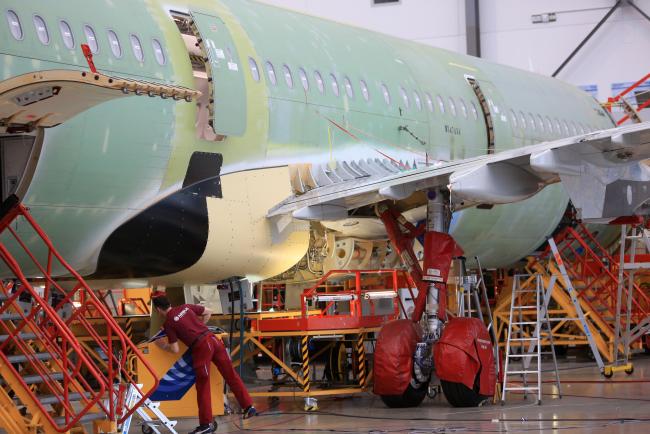(Bloomberg) -- The European Union gave the green light to start trade negotiations with the U.S., as they seek to rebuild frayed relations a week after threatening each other with billions of dollars in new tariffs over a 14-year-old aviation dispute.
EU ministers on Monday authorized talks to eliminate tariffs on industrial goods, following through on a political accord reached in July between President Donald Trump and European Commission President Jean-Claude Juncker. The EU sought the agreement with the U.S. president, in part to avoid levies Trump threatened on foreign automobiles and car parts.
Negotiations will start amid escalating transatlantic tensions, with the U.S. having accused the EU of not acting in good faith and delaying the start of talks. Trump’s car-tariff warning, which would be based on the same national-security grounds used for controversial duties last year on foreign steel and aluminum, will weigh heavily on discussions, with the EU bristling over the idea that it poses a threat to the U.S.
“We aren’t enemies of the economy here, we aren’t threatening the economy here, we are the closest friends,” European Commissioner of economic affairs Pierre Moscovici said in an interview with Bloomberg last week. “Let’s cool down, let’s not talk about any trade war between us, but in case, we need to be prepared.”
The EU is considering hitting U.S. goods ranging from handbags to helicopters with retaliatory tariffs to the tune of 10.2 billion euros ($11.5 billion) in a dispute over subsidies to Boeing (NYSE:BA) Co. The plan follows a U.S. threat to seek $11 billion in damages through duties on European goods to counter state aid to Airbus SE.
The removal of transatlantic tariffs on industrial goods would expand U.S. exports to the EU by 13 percent and the bloc’s shipments to the American market by 10 percent, the commission said in January. The average tariff on non-farm products is 4.2 percent in the EU and 3.1 percent in the U.S., according to the commission.
